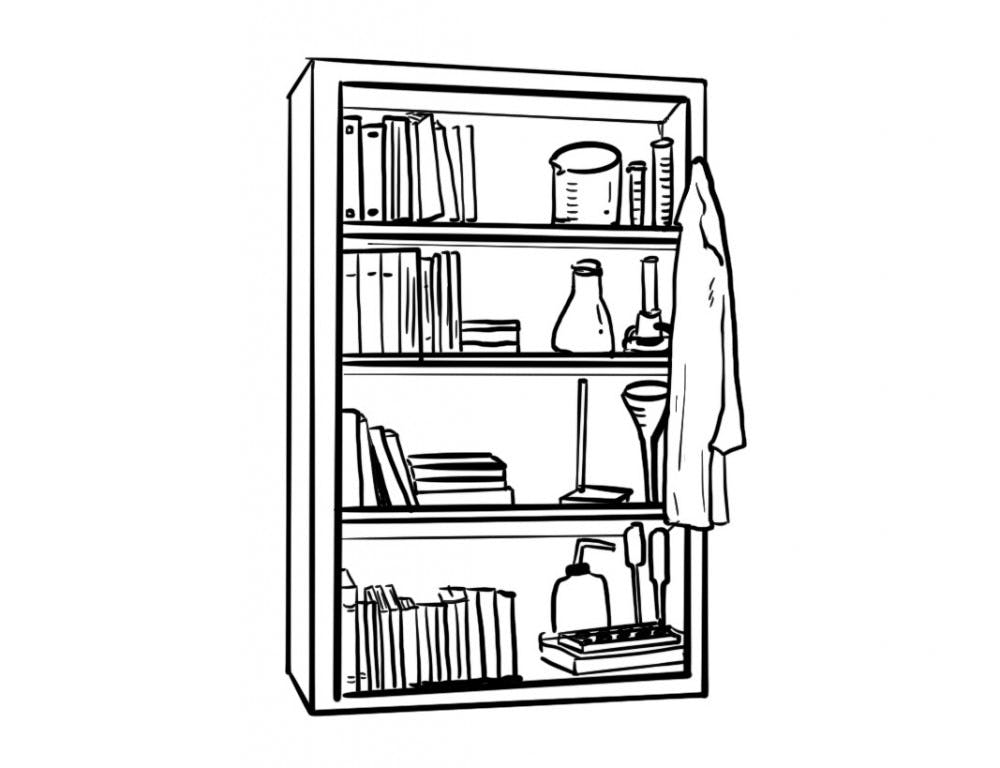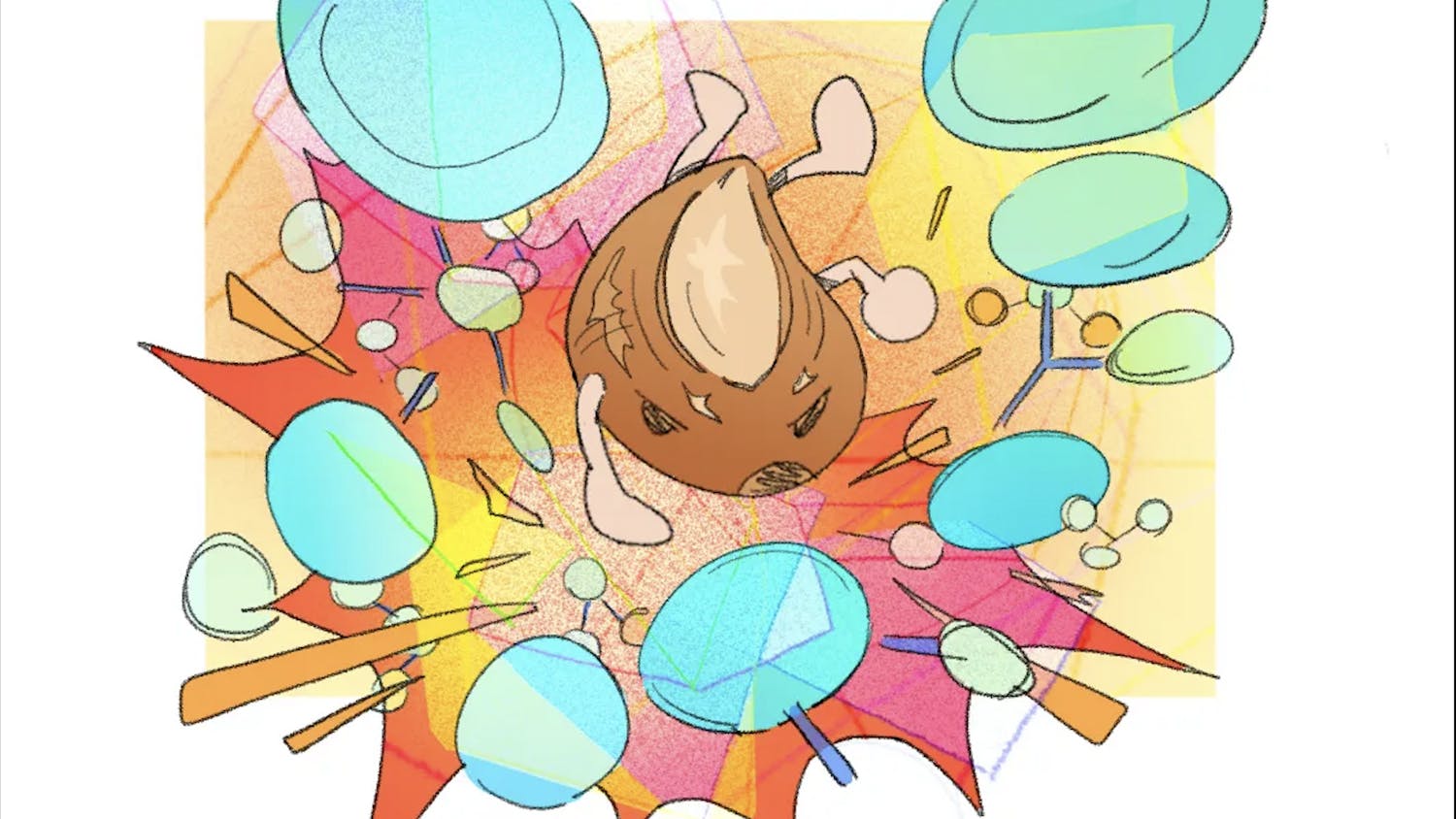Following the University’s instruction to shut down all non-essential research in laboratories by March 18 — by which time most students had relocated off-campus — it became apparent that remote work would become the new normal for millions of people around the world, including researchers accustomed to work they could not so easily take home with them.
In this installment of The Herald’s coverage of academics’ responses to the COVID-19 pandemic, STEM researchers, laboratory course instructors and clinicians speak to their perspectives, commitments and uncertainties surrounding these times.
Conducting research at home and “facing new pressures”
Loren Albert, a postdoctoral research associate at the Institute at Brown for Environment and Society, is grateful for the work she can do at home. She studies tropical forests alongside Associate Professor of Environmental Studies James Kellner and Professor of Ecology and Evolutionary Biology and Environment and Society Stephen Porder. Albert’s research focuses on how climate change impacts droughts and temperature fluctuations in forests. Currently, she is analyzing the structures of forests in Costa Rica and Europe with data that was collected by a drone as it flew over these landscapes. Fortunately, she had already collected the data before the COVID-19 outbreak escalated.
“I really have hundreds of gigabytes of data and several papers to write, so I could have enough to work with for a couple months. I just need to hunker down and work from home,” she said.
Albert thinks her productivity will match how much she can get done during a normal work week. But, she said, “I'm like all people where we're reading the news more, and we're taking in loved ones more, and kind of constantly reacting to the rapidly changing world.”
“I control my code on my computer. I don't control what the grocery store is going to do tomorrow,” she said. While it may be a comforting distraction to engage with work, Albert said that “a lot of academics are facing new pressures right now.”
Last summer, Albert traveled to the Czech Republic to collect data. “It's hard to imagine repeating that campaign right now over the next few months — until borders become more fluid again,” she said. While she is content now with the data that she can analyze, eventually, the lab will need to go out and visit the forests that they study again.
“I feel very fortunate that I am able to work on data from home when so many other people are facing layoffs and big challenges,” she said.
Courses redesign, redefine research education as plans are “completely changed”
Graduate students have also faced an adjustment. Students in the Molecular Biology, Cell Biology and Biochemistry graduate program, for example, rotate through laboratories during their first year. While students and faculty will try to stay connected through Zoom, “we can’t get around the fact that graduate students aren’t going to be able to do experiments in labs,” said Mark Johnson, associate professor of teaching excellence, associate professor of biology and director for the MCB graduate program.
“We’re trying to help graduate students develop projects that they can do remotely,” he said, adding that students can dedicate this time to research writing and studying for examinations. “We’re happy to adjust a lot of policies (and are) trying to make things as flexible as we can.”
At the undergraduate level, the University offered multiple courses designated as Course-Based Research Experiences this semester. Many of these courses are centered around in-person lab time and group project-based learning and had to be restructured when the University closed its doors to undergraduate students starting March 17.
In the CURE course BIOL 0440: “Inquiry in Plant Biology: Analysis of Plant Growth, Reproduction and Adaptive Responses,” “each working group is (going to) develop a new project that we can do remotely,” said Johnson, one of the course’s instructors this semester. “It absolutely completely changed what we were planning to do.”
Kristina Cohen, an HHMI postdoctoral research associate who helps coordinate CURE courses, is teaching one this semester entitled BIOL 0285: “Inquiry in Biochemistry: From Gene to Protein Function.”
“It is really sad for the students to not be able to see it through to the end, because we invested so much time into developing our hypotheses,” she said, adding that her class will shift to focus on reading primary literature and practicing scientific writing during this period of distance learning.
In order to address the science underlying the COVID-19 pandemic, Cohen sent a poll to her students, asking if they would be interested in reading primary literature centered around the biochemistry that is known about the virus’s mode of infection. While not all students feel the same, focusing on the science behind the virus may help them “stay grounded” and focus on something “which may have a more positive impact in the future,” she said.
Typically, many of these courses culminate in a poster presentation. “We do still intend to have some type of virtual presentation format” that will vary from class to class, Cohen said.
“Too early to tell” what the summer will bring
The summer, a period traditionally marked by new experiences and sunny days, is now a source of uncertainty for many students and faculty alike, as no one knows how exactly the crisis will change in the coming months.
On March 23, the College sent an email to all students who had applied to Brown-funded summer programs, including the Undergraduate Teaching and Research Awards which support student summer research projects, notifying them that the deadline for decision announcements was delayed from the initially planned mid-March to April 1. The announcements have not yet been released.
“We currently plan to continue funding U.S. domestic opportunities,” the original email stated.
Oludurotimi Adetunji, associate dean of the college for undergraduate research and inclusive science, wrote in an email to The Herald that “it is too early to tell” whether the UTRA program will be able to run as it usually does.
“We are working with colleagues who oversee other summer funding opportunities to think creatively about ways in which we might support student learning this summer,” he added.
A planned eight-week summer program at ICERM, Brown’s computational mathematics institute will “at least start online,” Vice President for Research Jill Pipher wrote in a statement to The Herald.
Sarah Berman ’20.5, who is concentrating in materials engineering and works in the lab of Assistant Professor of Engineering Eric Chason, said that the lab closures initially made her rethink her summer plans. “To do my thesis, I almost 100% have to come back over the summer,” she said.
In clinical research, “wellbeing and safety” are of “primary concern”
Down College Hill, COVID-19 has further hindered research efforts at Lifespan-affiliated laboratories, but researchers are continuing to do as much as they can without compromising the health of all involved. “COVID-19 has created many challenges to the research enterprise nationally,” wrote Bharat Ramratnam, associate professor of medicine, vice chair of research for the department of medicine and chief science officer of Lifespan, in a statement to The Herald. The “overall well being and safety of our patients and staff are our primary concern at Lifespan.”
In response to the pandemic, the scientific staff are working to apply virtual communication to their protocols wherever possible, but “selected drug trials continue with all study visits being coordinated with necessary clinical appointments so as to minimize travel and exposures,” Ramratnam wrote.
Ongoing Lifespan research is being regularly monitored and associated activities evaluated accordingly, Ramratnam added. The Institutional Review Board, which helps oversee human subjects research, and the clinical trials offices are also holding their meetings virtually but “continue to be fully operational.”
Back at the University, although most labs have temporarily had to suspend their on-campus research to adhere to social distancing and safety precautions during the COVID-19 pandemic, several labs are dedicating their time and resources to projects on the virus. “Research that will help in the diagnosis or treatment of COVID-19 is considered to be critical work that is permitted to continue at Brown,” Pipher wrote, adding that currently at least two University affiliated labs are pursuing COVID-related projects.
Long term implications met with “flexibility and support”
In terms of grant funding, which fuels research efforts at the University, “many federal agencies have already responded to the crisis with flexibility and support,” Pipher wrote, adding that additional information from Brown’s Office of Sponsored Projects can be found online. The “National Institutes of Health is allowing for late financial and progress reports, and if research is delayed due to COVID-19, unobligated balances on active grants can be carried over without requesting prior approval.”
Even aspects of research that are easily completed electronically may prove difficult to complete at this time as researchers face new personal obstacles and worries. “While the business of writing, submitting, and reviewing publications is largely electronic, it will be challenging for researchers with family and other obligations at home, and possibly a new method of teaching to master, to be fully productive,” Pipher wrote in the statement.
Pipher added that the research office is “actively seeking funding opportunities for all of our dedicated, accomplished researchers who are deeply committed to continuing their work. Even in these unprecedented circumstances, we are working to keep research at Brown going to the extent possible.”

ADVERTISEMENT




